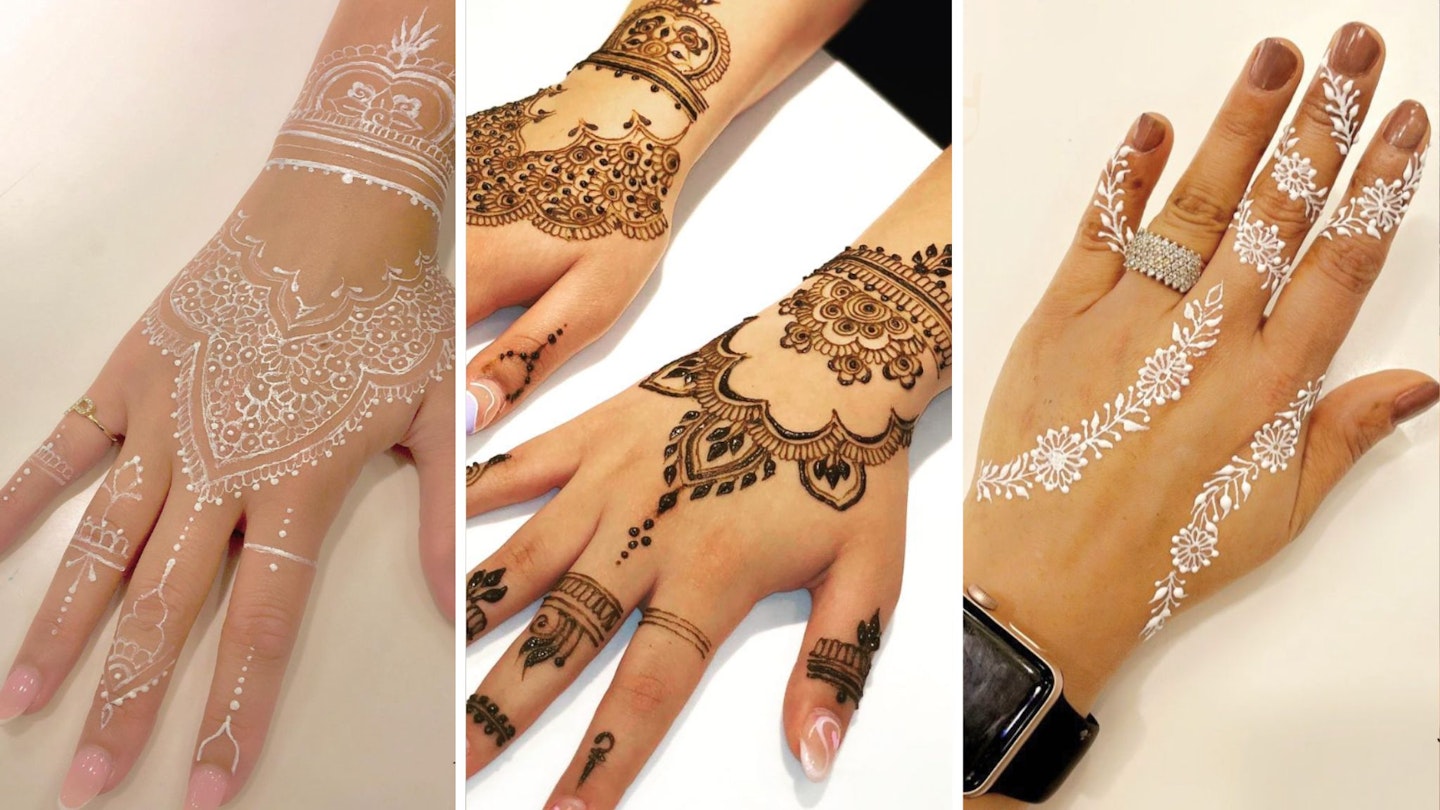If you caught BBC's Dragon's Den last week you would have seen 38-year-old Pavan Ahluwalia-Dhanjal deliver a bold beauty pitch to the Den's resident Dragons. Ahluwalia-Dhanjal shared her vision for her eponymous henna brand Pavan Beauty, with the line-up of potential investors including Deborah Meaden, Touker Suleyman, and Steven Bartlett. Originally seeking a £50,000 investment in return for 20% equity in her company Ahluwalia-Dhanjal's pitch was a success (after much grilling from the Dragons). She managed to secure Touker Suleyman's investment of all of the money requested in return for a 40% share in her business.
Were we surprised by the outcome? Not entirely. In the UK, henna has seen a significant rise in search volume, with a near 5,000% increase in people looking for basic henna designs alone. Ever ahead of the curve, Lush caught on early and has been selling slabs of Henna Hair Dye, £15, for yonks, helping it to become a reliable destination for South Asian mothers like my own who routinely visit Lush stores for her routine top-ups of natural hair dye.
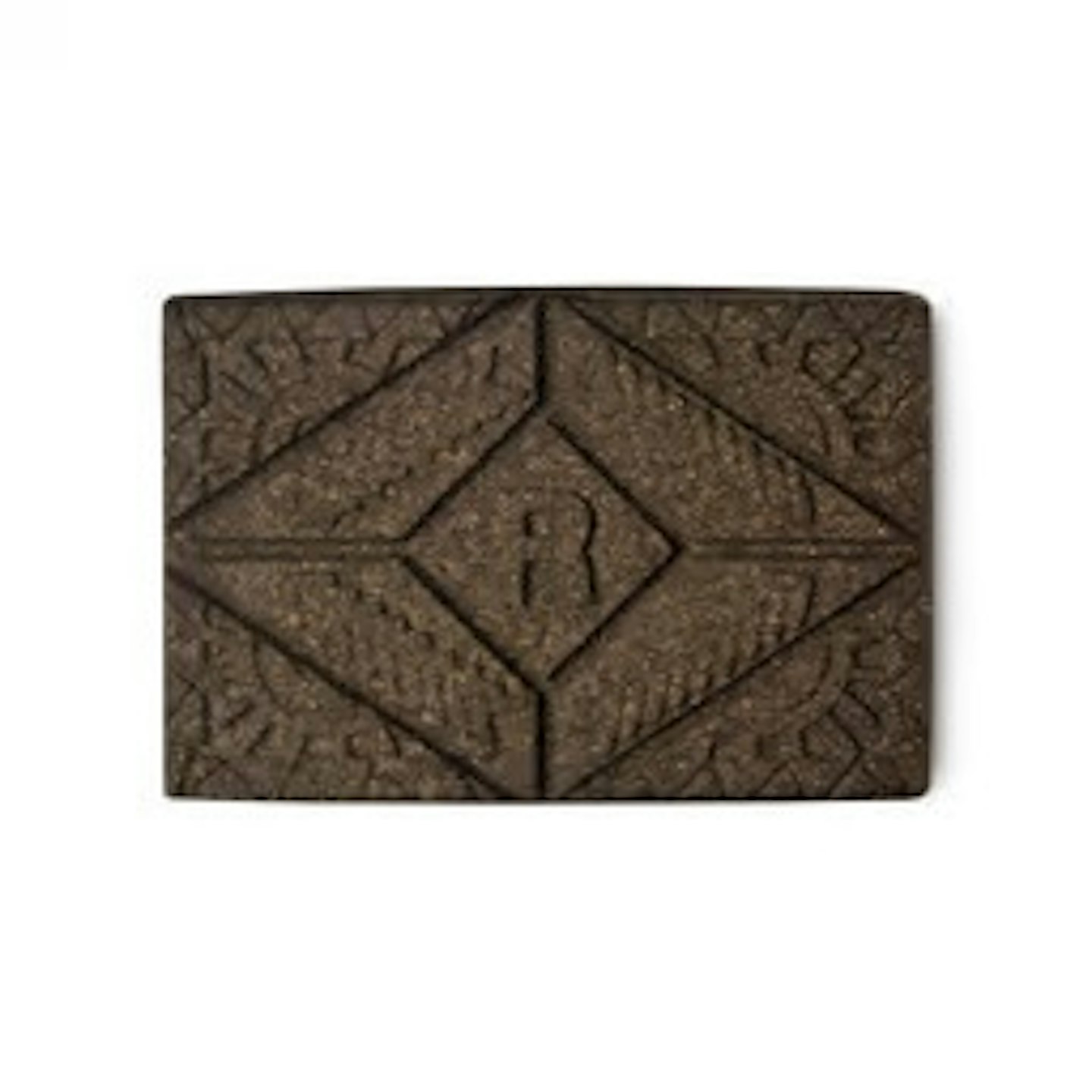
www.lush.com
Available in a range of shades, these slabs of henna are specifically formulated for your hair to help dye stands in a 100% natural way. Think of it as the safe and sustainable answer to hair dying.
Clearly, Ahluwalia-Dhanjal is in the thick of an expanding UK market. Already a business woman, she has paved the way for making henna mainstream, her brand can already be experienced at the Pavan Beauty Henna Bar based in London's Selfridges, and the henna cones are available to buy. She's been racking up impressive sales figures for a while now. She's also a majorly talented henna artist. She holds two Guinness World Record for being the fastest henna artist. If all that weren't enough to sway the Dragons, then know that she's also caught the attention of big retail giants including Harrods where she previously created a window display – an honour usually bestowed upon luxury design houses such as Dior and Maison Valentino.
The henna, though, is the real star of the show. A staple of South Asian culture, henna – or mehndi as it's also known to Pakistanis, Indians and Bangladeshis – is at its core a beauty treatment. Its intricate, distinct and undeniably beautiful patterns are laced with ancient cultural traditions that span South Asia, the Middle East and North Africa. In fact, some claim that the earliest signs of henna application appear to be on Egyptians mummies.
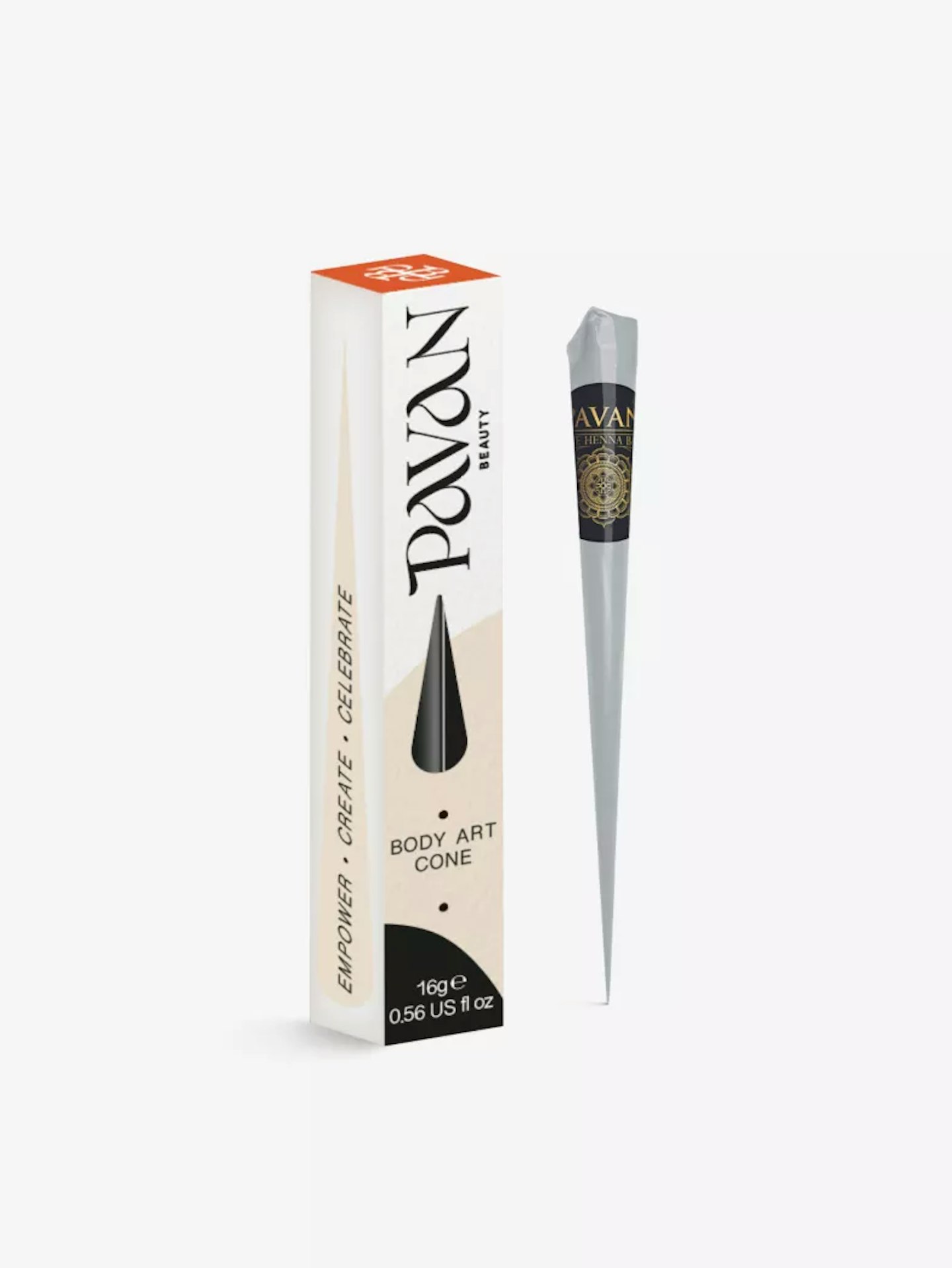
www.selfridges.com
Enjoy a beauty product that is steeped in centuries of ancient cultural traditions with Pavan Beauty's easy to use henna cone, which can be used almost anywhere on the body – though we would recommend using it on your hands, arms, feet and legs.
Ahluwalia-Dhanjal first discovered henna as a child after seeing it being applied on a bride – a traditional act of beautification for any South Asian bride ahead of her wedding. Speaking through the lens of her South Asian experience, Ahluwalia-Dhanjal explains, 'culturally, mehndi is usually the first introduction to beauty, it celebrates sisterhood, and an unspoken bond between women, women of colour in a way that is beautiful, empowering and inspiring – a celebration of skin.' Since then she's worked with actors on set at the BBC, launched pop-ups at major retailers and last month celebrated 10 years of bringing henna to the high street with Selfridges.
'I'm a creative at heart, when I apply mehndi I feel aligned with the universe, I was meant to be a part of a movement that shares incredible, diverse, cultural ancient rituals and art with the modern world. It became important to me to share this unique form of beauty make-up to the masses, I didn't see why it had to be exclusive to my culture and community, I wanted people to be able to experience henna in the same place they got a manicure or brow shape or bought make-up, fragrance or fashion,' she says.
The Dragons put Pavan Beauty through its paces before making a final decision, but one particular comment managed to help Ahluwalia-Dhanjal cross the finish line. 'When Sara [Davies] said she didn't think I'd go beyond my culture and community, that motivated me and made me more determined to drive the business. I’m a creative at heart and numbers come second, so this forced me to really think about my business as a whole and what we have brought to the market, not only in terms of numbers but also diversity, cultural education and inclusivity.
'Our presence on Dragons' Den is a testament to the hard work and dedication of the entire Pavan Beauty team. We are not just selling products; we are sharing a cultural experience, a tradition that spans centuries. I am thrilled to showcase how Pavan Beauty is not just a brand but a movement towards embracing beauty in all its forms.'
And with education at the core of what she does, Ahluwalia-Dhanjal helps to demystify some of the most asked questions surrounding henna. Read on for everything you need to know about the beauty treatment.
What is henna?
Henna is a plant that is grown in warm climates and the leaves are crushed into powder. 'At Pavan Beauty, we mix this with essential oils to create a paste that is then applied on the skin. We only use a natural, non-toxic formula.'
How to make henna darker
The correct term is 'stain' – henna artists and those well-versed in the treatment will always measure the quality of the henna by how well it stains the skin and how long for. A good stain is a deep reddish brown which lasts a good week or two before it begins to fade. But there are ways to help henna to darken and leave an impressive stain once it is applied.
'Leave it on as long as you can, flake it off rather than wash it off,' says Ahluwalia-Dhanjal. 'Some henna artists will use a clove/lemon juice mix on henna whilst it's drying to achieve a deeper colour, my henna has been formulated with these ingredients so no need for these extra solutions. Also before application, ensure there are no oils or creams on the skin as this will act as a barrier and the colour will not come out to its full potential.'
How long does henna last?
'On average two weeks depending on how much exposure to water, beauty products, sun, clothing, and jewellery. It can be different on different skin types'
How long does henna take to apply?
This is very much dependent on the design and the area of the body being covered. 'It can take from 30 minutes to a couple of hours. It obviously depends on the amount required and the pattern,' says Ahluwalia-Dhanjal.
How to remove henna
Henna is notorious for the instant stain it leaves behind once it comes in to contact with skin, but Ahluwalia-Dhanjal explains, 'it will fade over time, the more exposure the henna has to water, products, and the sun, the quicker it will fade, you can encourage it to fade by steaming or oiling the skin.'
Basic henna designs
Henna designs to try now
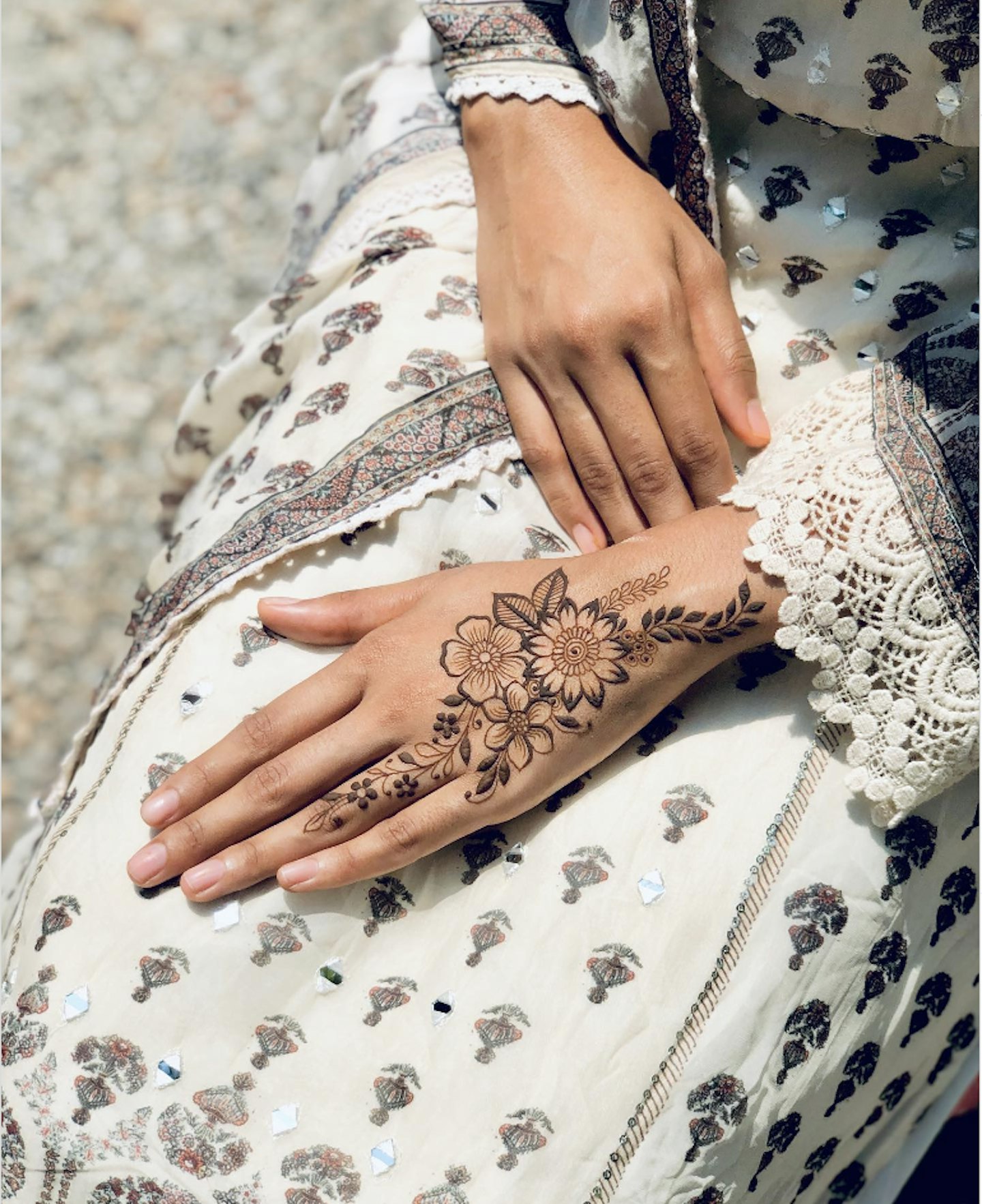 1 of 7
1 of 7Traditional Florals
Florals are key to henna designs and this one encompasses a fair few variations to keep things looking fresh and modern.
Image: @de_passionist
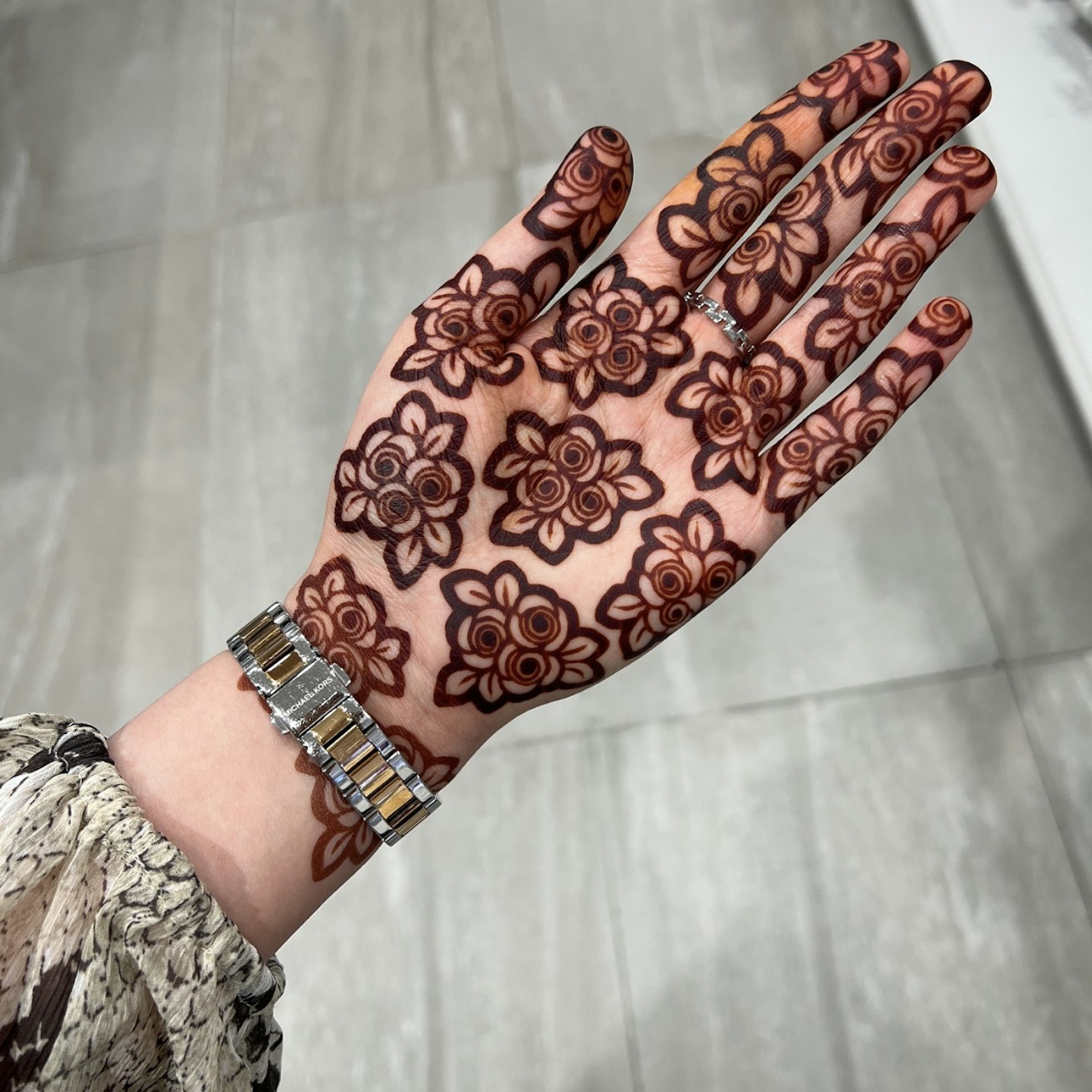 2 of 7
2 of 7Modern Motifs
Simple flower motifs make for big impact with this modern twist on a classic design.
Image: @blisshennabyzahra
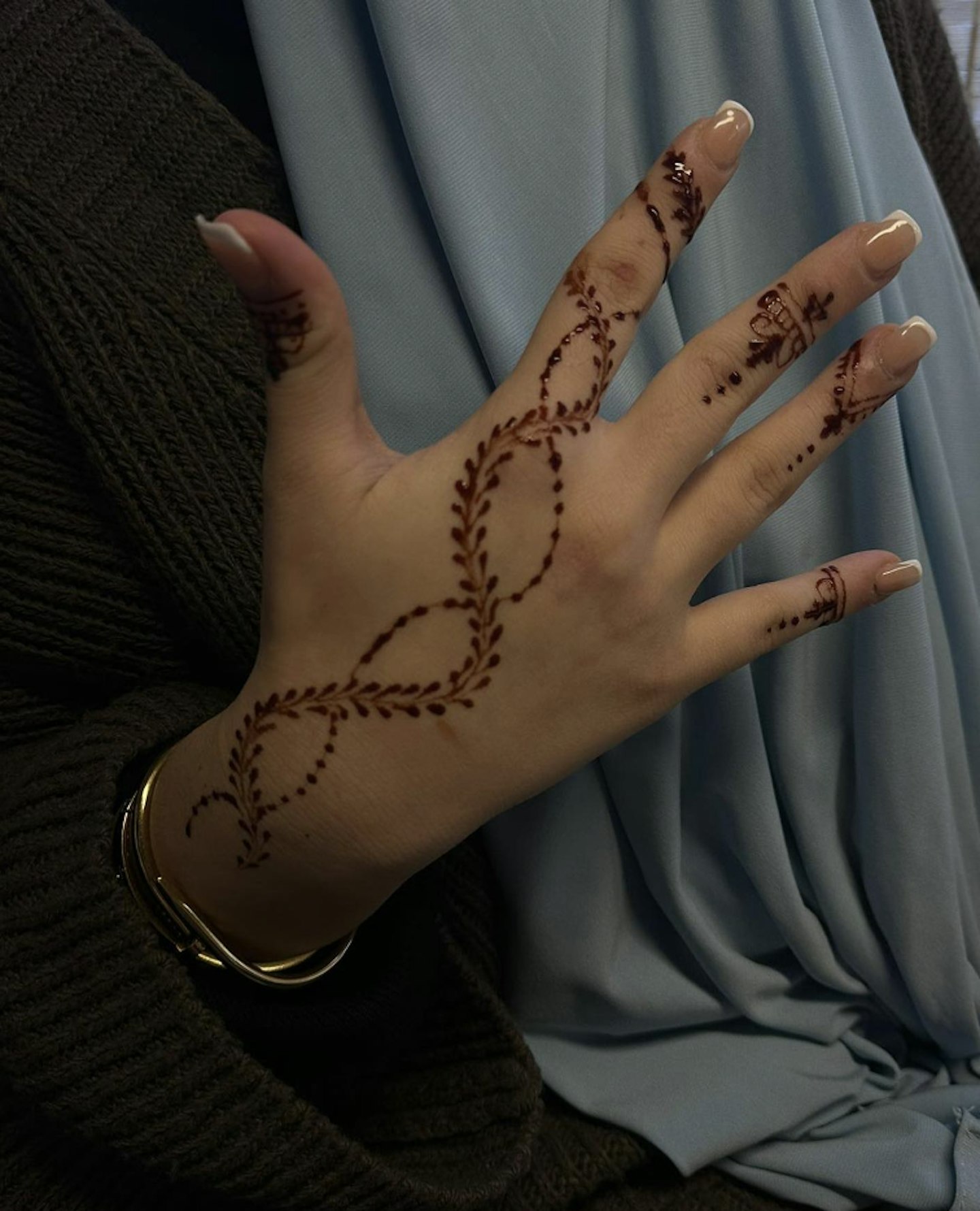 3 of 7
3 of 7Dainty Vines
Twisted, dainty vines are perhaps the simplest way to start if you're new to henna.
Image: @clarabydina
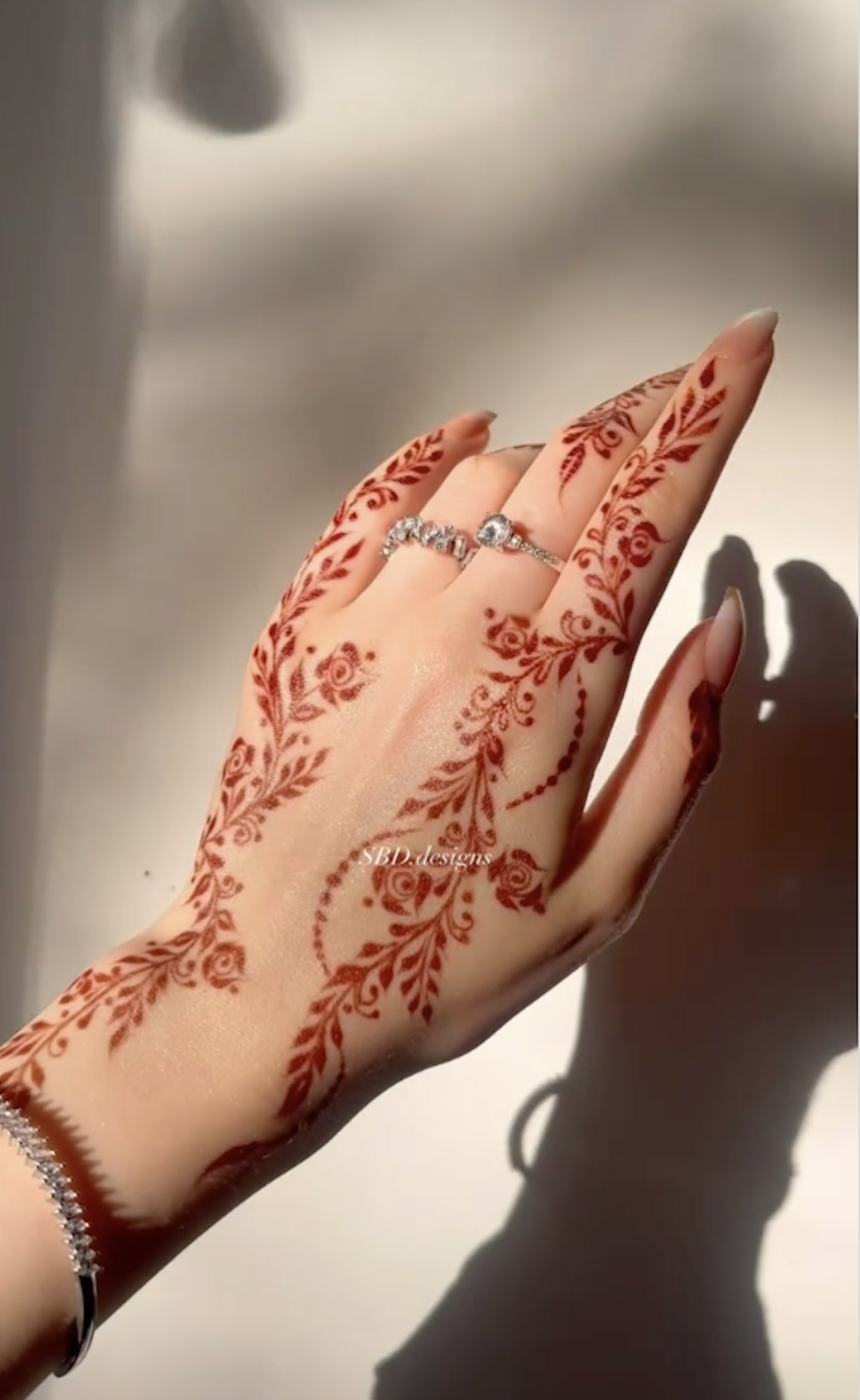 4 of 7
4 of 7Simple Arabic Henna
Speaking of dainty, this Arabic-inspired design is an elegant way to trial henna.
Image: @sbd.designs
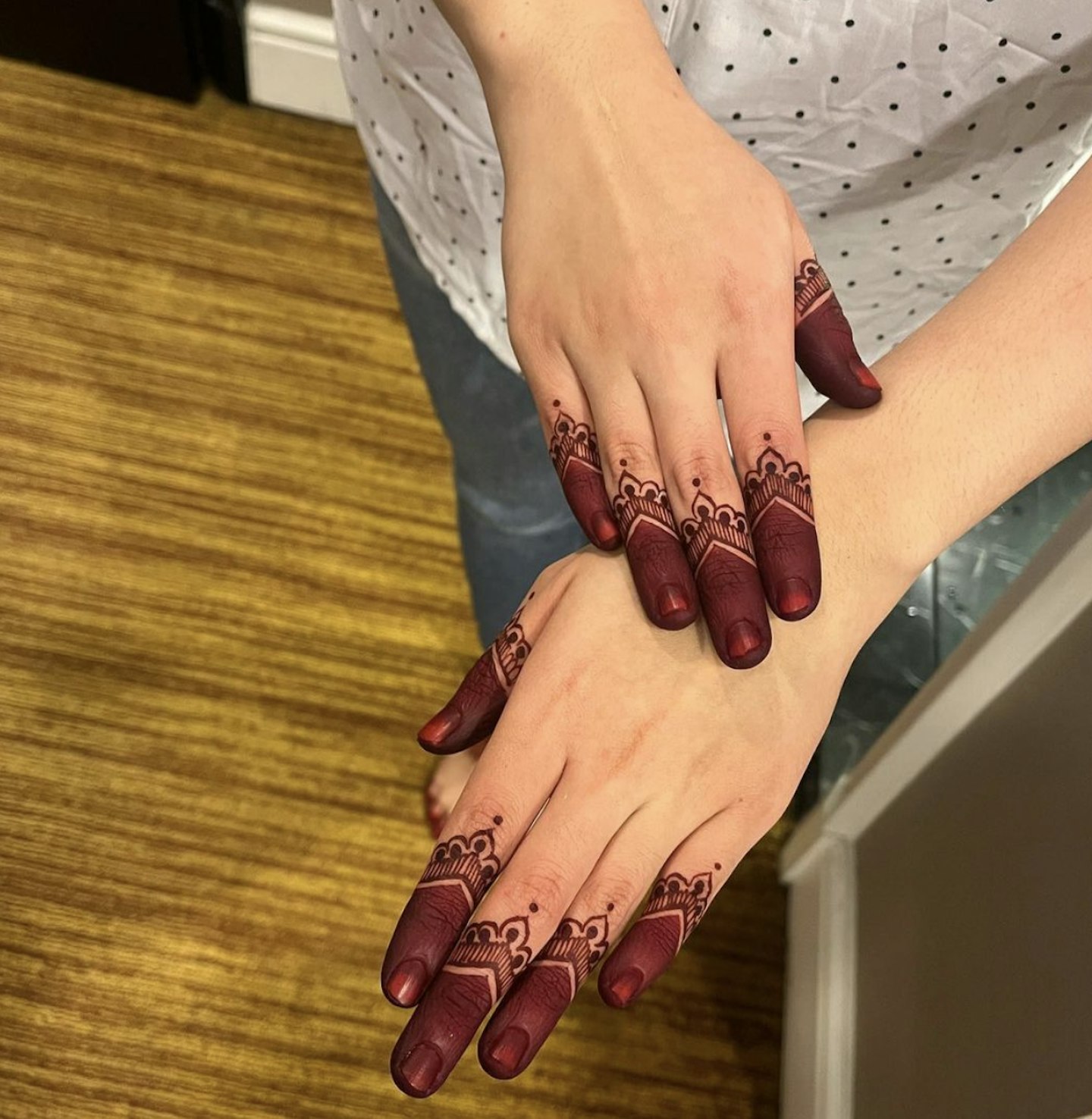 5 of 7
5 of 7Henna Finertips
This traditional design is native to Malaysia and focuses henna at the nails and fingertips.
Image: @nanasyazhenna
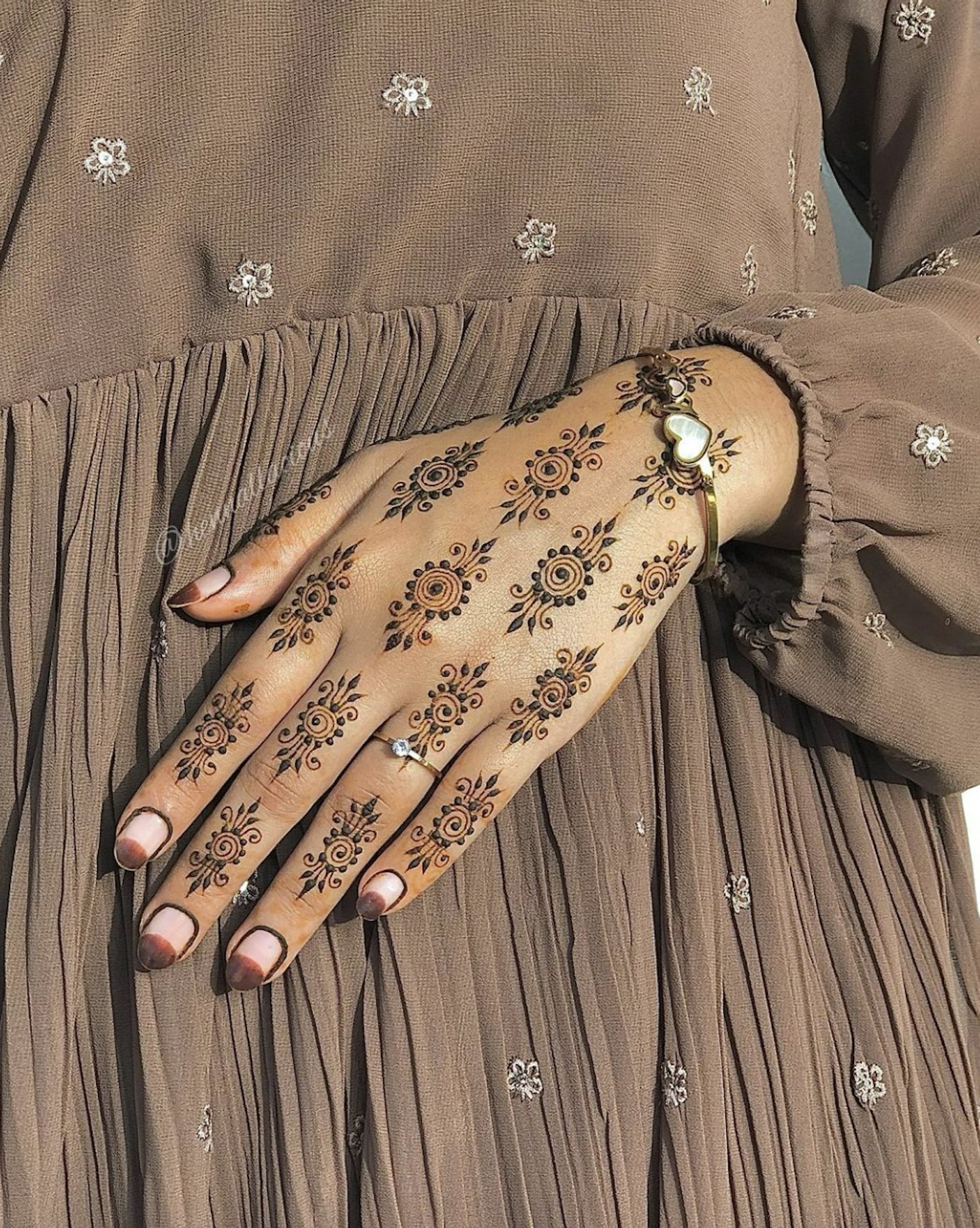 6 of 7
6 of 7Single Pattern Henna
A stunning single-pattern look made unique with henna French tips.
Image: @hennallacious
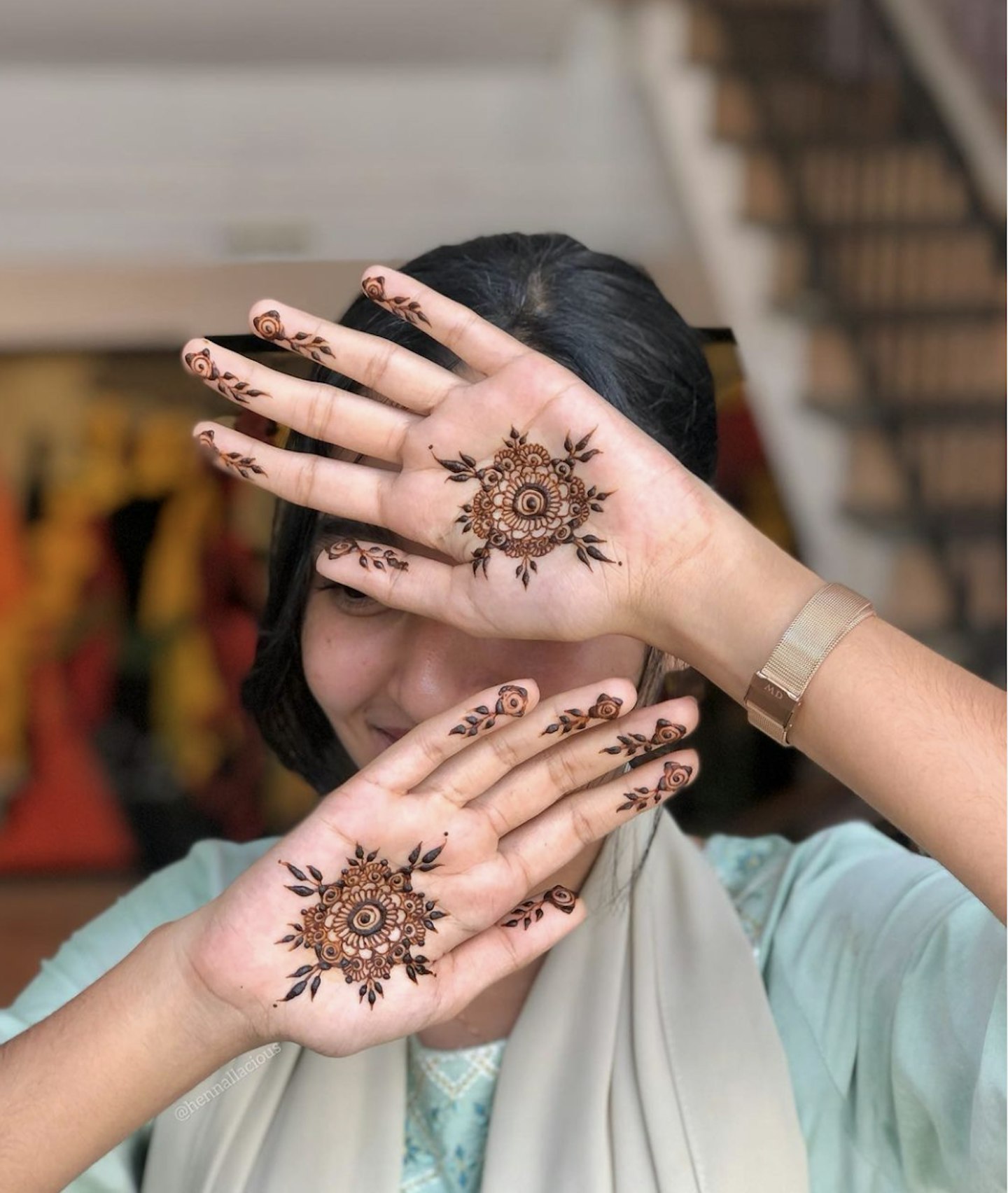 7 of 7
7 of 7Traditional Palms
A traditional look simplified, palm henna designs are big in South Asia and this is a elegant way to try the style.
Image: @hennallacious
Main image: @pavanhennabar
Sameeha Shaikh is Grazia UK's Beauty Writer, working across all categories to bring you insights on the latest trends, industry news and the products you need to know about, viral or not (most probably viral).
